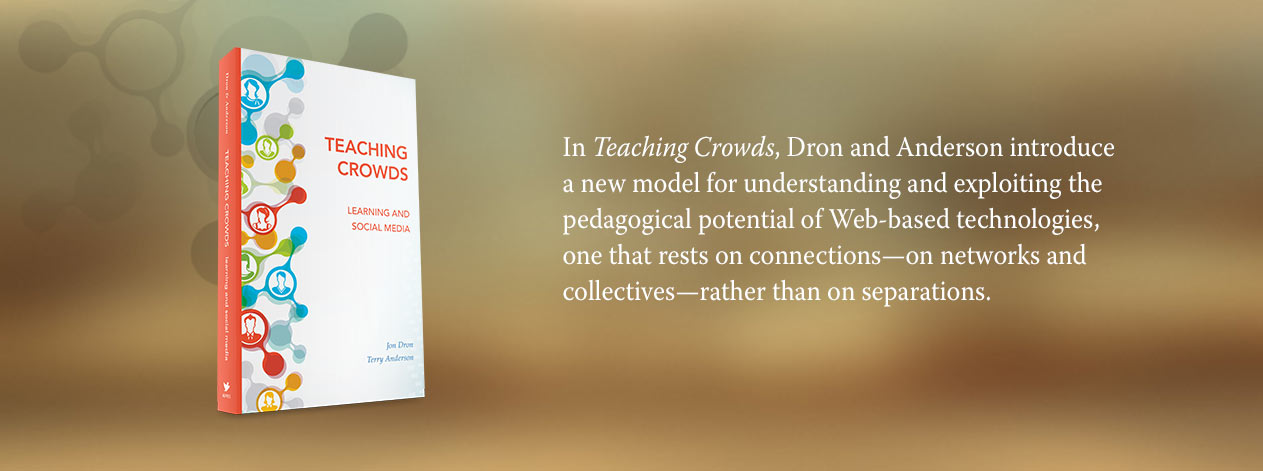We have authored quite a few peer review papers relating to the themes and ideas discussed in Teaching Crowds. This page lists a sample of some of these.
Collectives, networks and groups in social software for e-Learning (2007) – our first attempt at a taxonomy of social forms, in which we conflated what we now identify sets and collectives into the ‘collective’.
Lost in social space: Information retrieval issues in Web 1.5 (2009)- describing an attempt to use social media in conventional university teaching.
How the crowd can teach (2009) – book chapter providing an early exploration of the themes in this book.
On the design of collective applications (2009) – describing the nature of collectives and applications that make use of them in some detail
Three generations of distance education pedagogy (2011)- a way of looking at the history of distance education in terms of pedagogical models.
Learning technology through three generations of technology enhanced distance education pedagogy (2012) – focuses on the technologies most relevant and useful to each of the three generations.
Putting Things in Context-Designing Social Media for Education (2012, with George Siemens) – describing the issues of context that affect institutional learners and our context-switching toolset that attempts to deal with this.
Learning in a Distance Teaching Community: A Case Study (2012) – looks at the problem of learning with others when working and teaching in a distributed community, with a discussion of ways the Landing helps to reduce the problem.
Filling the Gaps With a Virtual Learning Commons at an Online University (2014) – describing the rationale and design of the Landing as a means of enabling informal and non-formal learning in a distributed and online university community.
On the Design of Social Media for Learning (2014) – bringing together our model of social forms and a structural view of soft and hard technologies.
The Distant Crowd: Transactional Distance and New Social Media Literacies (2014) – exploring the way that transactional distance is transformed in different social forms (network, set and group).
Agoraphobia and the modern learner (2014) – a discussion of the benefits and concerns surrounding different social forms and the open sharing of content and interaction.
![]()
